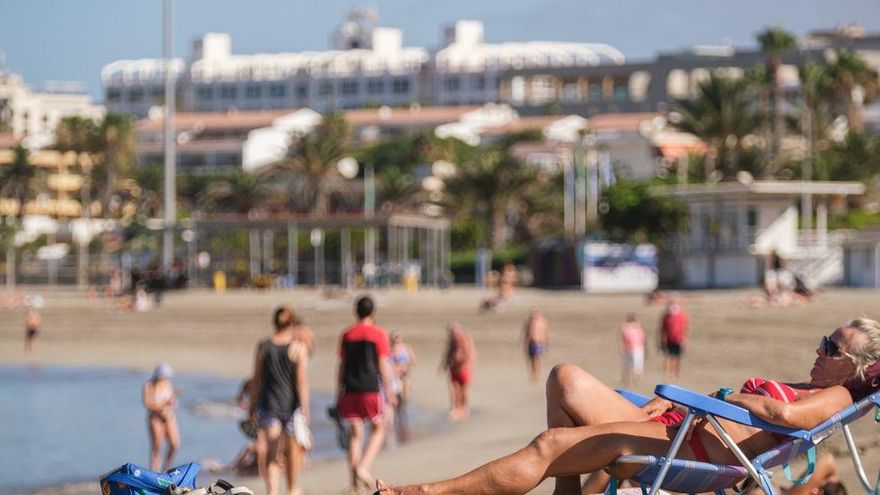
When you organize a vacation to a place you have not previously visited two things usually happen, or that it is better than expected, or on the contrary, it is worse. In times of covid, in full war between russia and ukraine, and with all the problems that have arisen directly related to both, it is expected that the level of demand will be in accordance with the situation. After all, after the climate of tension, stress and uncertainty experienced in recent months, if not years, it seems that the ideal or ideal is simply to enjoy the sun and tranquility when one spends a few days in the winter of the Canary Islands.
However, not everyone who visits the Islands does so with that mentality. This could be the case of a couple of English tourists who have recently traveled to Tenerife and who are using their social networks to give an opinion (more bad than good) about their adventures on the Island. Among his posts you can read: “Full of Nazis here in Tenerife. Face masks of course, but if you walk down the street smoking you can get a 1000 euro fine. You have to stop and smoke standing up. I’d love to know the science.” ” or “Ferry from Tenerife to La Gomera. It’s falling apart, but you must wear a mask to stay safe.” Of the same ship he also wrote: “On board the ferry from Tenerife to La Gomera. This rusty old rattle bucket surely won’t make it.” Although it is true that the publications can be understood as a joke by the English tourist towards his almost 1,000 followers, some are not to the liking of the people of Tenerife, who dismiss the foreigner’s sarcasm and humor as a bad attitude.
Social networks are today a double-edged sword. These have become a showcase and a window to the world that some use as mere entertainment, but that many others take advantage of to show their opinion and expose their criticisms, unfortunately in some cases, unfounded. Its great reach and its ease to spread something and make it viral mean that they are increasingly used as a measure of relief in situations of frustration, without thinking about consequences or repercussions. In this sense, and as is well known, word of mouth is the best advertising and, of course, promotions such as those made by some tourists often leave much to be desired. Another example related to Tenerife took place just two years ago, with the start of the pandemic. One of the British couples who remained isolated at the H10 Costa Adeje Palace hotel for 10 days he defined his stay in the hotel establishment as “a nightmare”. The medium ‘Lynn News’ then picked up the complaints from Ben and Jenni King, who stated that they were “trapped” in the hotel in Tenerife affected by an outbreak of coronavirus.
The couple assured, as described by the aforementioned media, that they hardly received information from the Spanish authorities and that what they managed to find out was through their phones. Likewise, they denounced that they hardly gave them food during the first hours. “Just an apple, bananas, water and some pasta under the door,” they said. However, since the hotel was quarantined, workers, health workers and authorities carried out a intense work to serve, advise, and provide guests with all the help and information pertinent information about the measures being taken. In this sense, the Adeje City Council unanimously approved an institutional motion, defended by the mayor, Jose Miguel Rodriguez Fragain which the work of the workers of the establishment was recognized since the isolation of the complex was decreed.















